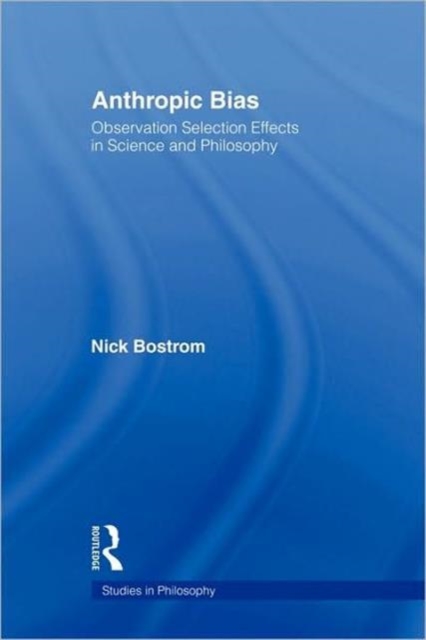
Anthropic Bias : Observation Selection Effects in Science and Philosophy Paperback / softback
by Nick Bostrom
Part of the Studies in Philosophy series
Paperback / softback
Description
Anthropic Bias explores how to reason when you suspect that your evidence is biased by "observation selection effects"--that is, evidence that has been filtered by the precondition that there be some suitably positioned observer to "have" the evidence.
This conundrum--sometimes alluded to as "the anthropic principle," "self-locating belief," or "indexical information"--turns out to be a surprisingly perplexing and intellectually stimulating challenge, one abounding with important implications for many areas in science and philosophy.
There are the philosophical thought experiments and paradoxes: the Doomsday Argument; Sleeping Beauty; the Presumptuous Philosopher; Adam & Eve; the Absent-Minded Driver; the Shooting Room. And there are the applications in contemporary science: cosmology ("How many universes are there?", "Why does the universe appear fine-tuned for life?"); evolutionary theory ("How improbable was the evolution of intelligent life on our planet?"); the problem of time's arrow ("Can it be given a thermodynamic explanation?"); quantum physics ("How can the many-worlds theory be tested?"); game-theory problems with imperfect recall ("How to model them?"); even traffic analysis ("Why is the 'next lane' faster?"). Anthropic Bias argues that the same principles are at work across all these domains. And it offers a synthesis: a mathematically explicit theory of observation selection effects that attempts to meet scientific needs while steering clear of philosophical paradox.
Information
-
Out of stock
- Format:Paperback / softback
- Pages:230 pages
- Publisher:Taylor & Francis Ltd
- Publication Date:18/06/2010
- Category:
- ISBN:9780415883948
Other Formats
- Hardback from £145.00
- EPUB from £41.39
- PDF from £41.39
Information
-
Out of stock
- Format:Paperback / softback
- Pages:230 pages
- Publisher:Taylor & Francis Ltd
- Publication Date:18/06/2010
- Category:
- ISBN:9780415883948










